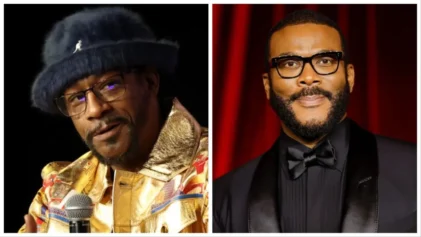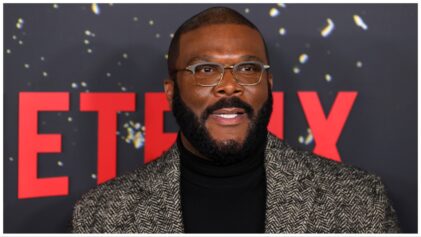Tyler Perry is well aware of the criticisms over the character Mabel “Madea” Earlene Simmons and recently found himself defending his work during a recent interview when the “Madea’s Family Reunion” director was reminded of the disdain some of his peers have for the art he creates.
During a recent appearance on “Who’s Talking to Chris Wallace,” the 53-year-old actor was reminded once again of the less-than-positive feedback given by some of Hollywood’s most prominent veterans, specifically fellow filmmaker Spike Lee, who infamously called Madea “coonery buffoonery.” Perry was often accused of enforcing black stereotypes with characters like Madea and other productions like “Meet the Brown.”
“Emasculating Black men, I’ve heard it all. Yeah,” he told Wallace during the HBO Max presented interview that started streaming over the weekend. “There’s a certain part of our society, especially Black people in the culture, that they look down on certain things within the culture.”
Perry shared his perspective, stating, “For me, I love the movies that I’ve done because they are the people that I grew up with that I represent.”
He continued, “So when someone says, you’re harkening back to a point in our life that we don’t want to talk about or we don’t want the world to see—you’re dismissing the stories of millions and millions of Black people, and that’s why I think it’s been so successful because it resonates with a lot of us who know these women, and these experiences, and Uncle Joe and so and so forth….”
The online chatter doesn’t appear to bother the “Good Deeds” director, who told host Wallace, “What is important to me is that I’m honoring the people that came up and taught and made me who I am.”
This wasn’t Perry’s first response to the “Crooklyn” filmmaker’s critique. In a 2009 interview, the Hollywood actor told Lee he could “go to hell” following his statements.
However, in 2013, it appeared that the two directors had made amends after the “Mo’ Better Blues” creator revealed during an appearance on “Oprah’s Next Chapter” that he had changed his opinion on Perry and that they were “cool” and had no “drama.”


